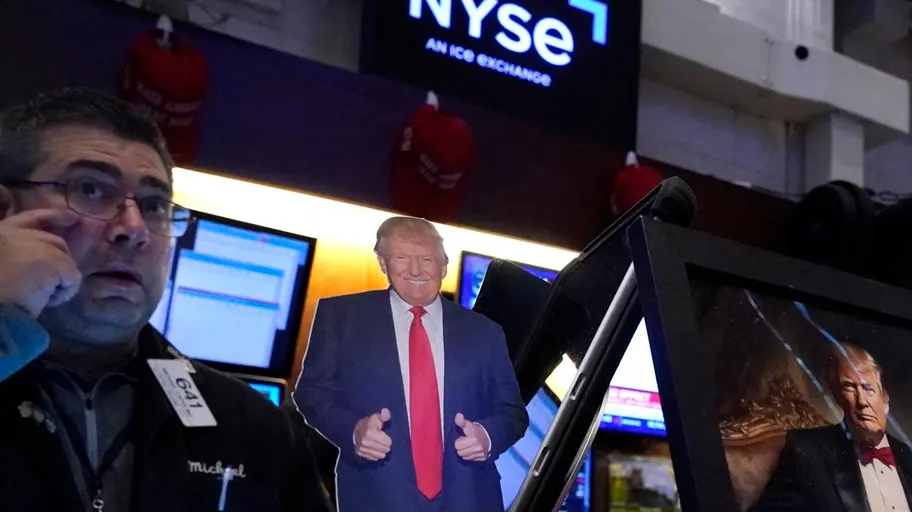Stocks dropped again Tuesday as President Donald Trump’s tariffs sparked queasiness on Wall Street, and leading the stock market woes were shares of Tesla, the electric vehicle firm run by Trump’s top lieutenant Elon Musk, also the world’s richest man.
Traders work the floor of the New York Stock Exchange on Tuesday.
AFP via Getty Images
Key Facts
The S&P 500, the most commonly cited U.S. stock benchmark, the blue chip Dow Jones Industrial Average and the tech-concentrated Nasdaq all fell 1.4% by 10 a.m. EST.
The S&P hit its lowest intraday level since Election Day, the Dow registered its lowest reading since Jan. 14 and the Nasdaq tallied its lowest price since Oct. 8.
The CBOE Volatility Index (VIX), often referred to as Wall Street’s fear gauge as it tracks moves in S&P options trading, rose Tuesday to its highest level since mid December.
Banks were the hardest hit stocks Tuesday, as the S&P’s financials sector declined more than 3%, as shares of each of the U.S.’ six most valuable banks – JPMorgan Chase, Bank of America, Wells Fargo, Morgan Stanley, Goldman Sachs and Citigroup – declined 4% or more.
Among the 43 “mega-cap” companies valued at $200 billion or more, Tuesday’s biggest percentage loser on the S&P was Tesla, which sank more than 7% to its lowest share price since Election Day.
Key Background
The S&P suffered its worst loss of 2025 on Monday. Most of the selloff followed Trump’s confirmation he planned to enact his 25% tariffs on Canadian and Mexican imports and 10% additional tariffs on Chinese goods, levies which went into effect Tuesday morning.
Surprising Fact
Tesla stock now trades below where it closed Nov. 6, the day after Election Day as Wall Street flooded into the company run by Elon Musk, the self-described “first buddy” of Trump. Shares of Tesla are down more than 40% from their December peak. Spurring Tuesday’s pullback was a report that its Chinese electric vehicle shipments declined 49% year-over-year in February. Shares of Tesla are down 37% since the Jan. 20 inauguration.
What To Watch For
The Nasdaq is on the cusp of entering a 10% correction, trading 9.9% below its record set last month.
Forbes Valuation
Musk’s net worth declined $6 billion to $349 billion Tuesday, according to our latest estimates. His fortune is more than $100 billion less than it was at its December peak.
How Do Tariffs Impact Stocks?
Tariffs can hurt companies’ financial performance in several ways. If American consumers curtail spending in response to higher prices, that would eat into revenue. If companies absorb the costs of tariffs, that would cut into domestic profit margins. If companies’ goods sold abroad are priced less competitively in response to any retaliatory tariffs, that may hurt non-U.S. sales. Stocks are already valued at a historically stretched ratio compared to earnings, a recipe for vulnerability upon an event shaking market confidence.
How Will This Batch Of Tariffs Impact Inflation?
The 10% duty on Chinese goods will boost U.S. core prices by 0.1% and the 25% levy on Canadian and Mexican imports will up core prices by 0.6%, estimated Goldman Sachs economist Alec Phillips in a Monday note to clients. A roughly 0.7% increase to core prices would reverse recent progress on inflation, which has been above the 2% ideal level for nearly four years straight.
Further Reading
ForbesTrump’s 25% Tariffs On Canada And Mexico Start Today—Here’s How They Could Impact PricesBy Sara Dorn ForbesWhy The Stock Market Slumped In Trump’s First Month—Even After Inflation BoostBy Derek Saul



